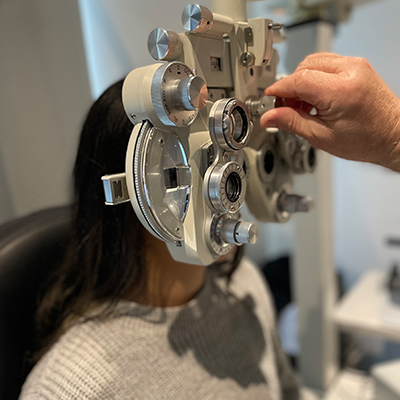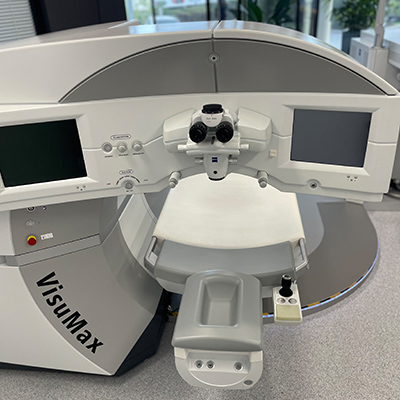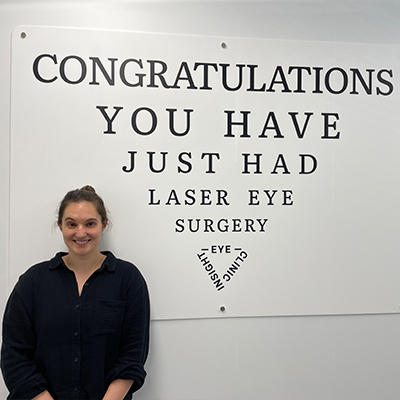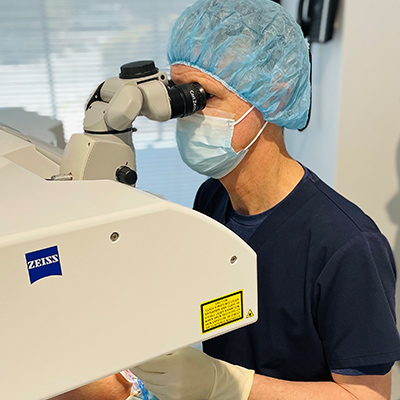The Awkward Age of 40
 Turning 40 can stir up a whole lot of emotions for people. Sadly, we can’t stop the aging process… but we can help you get away from the need to wear reading glasses. We’re here to help you learn all about why we need reading glasses by a certain age and how we can overcome this. age
Turning 40 can stir up a whole lot of emotions for people. Sadly, we can’t stop the aging process… but we can help you get away from the need to wear reading glasses. We’re here to help you learn all about why we need reading glasses by a certain age and how we can overcome this. age
Stick with us and read to the end – I promise you’ll be happier once you’re in the know.
 What is Presbyopia?
What is Presbyopia?
Presbyopia, which literally translates to ‘old eye’, is an unavoidable event. The deterioration of our near vision usually begins in our early to mid 40’s and worsens until approximately 65 years of age. It is a gradual, age-related loss of the eyes ability to focus actively on nearby objects.
 Presbyopia is caused by a hardening of the lens of the eye, which occurs with aging. As your lens becomes less flexible, it can no longer change shape to focus on close-up images. As a result, these images appear out of focus.
Presbyopia is caused by a hardening of the lens of the eye, which occurs with aging. As your lens becomes less flexible, it can no longer change shape to focus on close-up images. As a result, these images appear out of focus.
Symptoms include a need to hold reading material at arm’s length to make letters clearer, blurred vision at normal reading distance and eye strain after reading.
How laser eye surgery corrects vision & why it ISN’T a long-term solution for presbyopia age
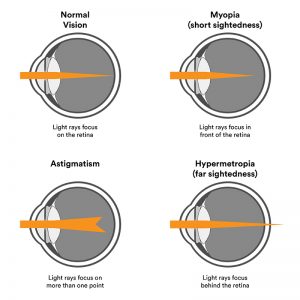
Image B
During all laser eye surgery procedures, the tissue on the eye’s surface (cornea) is reshaped by using a laser to ablate a microscopic amount of corneal tissue. The aim is for light to focus directly onto the retina (see image B). Click here for a more detailed description of each laser procedure on our website.
As you read earlier, presbyopia is related to the lens inside of the eye. There is an option to temporarily correct presbyopia with laser eye surgery by inducing short sight in the less dominant eye and keeping the dominant eye for distance vision (monovision). Monovision is temporary as the lens changes continue to happen making near vision deteriorate steadily over the period of many years. Your newly gained near vision might not last long at all.
Why RLE is a fantastic permanent solution upon onset of presbyopia
RLE is permanent. RLE also means that you will not require cataract surgery later in life because the natural lens (the part that becomes diseased with a cataract), is no longer there. Win win!
40 is awkward because…
 It’s really 39 to 41 years of age when it starts getting awkward. By 39 years of age, if laser eye surgery is suitable for you, this is technically the preferred method… although it means that you could end up in reading glasses in as soon as 2-3 years. It could mean that you don’t need reading glasses for 5-6 years; Unfortunately, we cannot predict the onset age of presbyopia.
It’s really 39 to 41 years of age when it starts getting awkward. By 39 years of age, if laser eye surgery is suitable for you, this is technically the preferred method… although it means that you could end up in reading glasses in as soon as 2-3 years. It could mean that you don’t need reading glasses for 5-6 years; Unfortunately, we cannot predict the onset age of presbyopia.
Some patients think that they won’t mind wearing reading glasses when presbyopia onset occurs. They opt for laser but then realise when presbyopic changes occur, the on/off with readers is inconvenient. With many years experience within the refractive industry, Dr Furness understands it is important to provide additional counselling for these patients. The alternative in this instance, is to wait a couple of years until after 40 when we know that near vision changes are imminent.
If you’ve made it to the end, well done!
We hope that this short education regarding the onset of presbyopia has been helpful and will aid you to make a well-informed decision if you are considering refractive surgery. Get in contact with us if you have any more questions related to this blog post on: info@insighteye.com.au
https://insighteye.com.au/get-amazing-vision-finevision-trifocal-intraocular-lenses/




